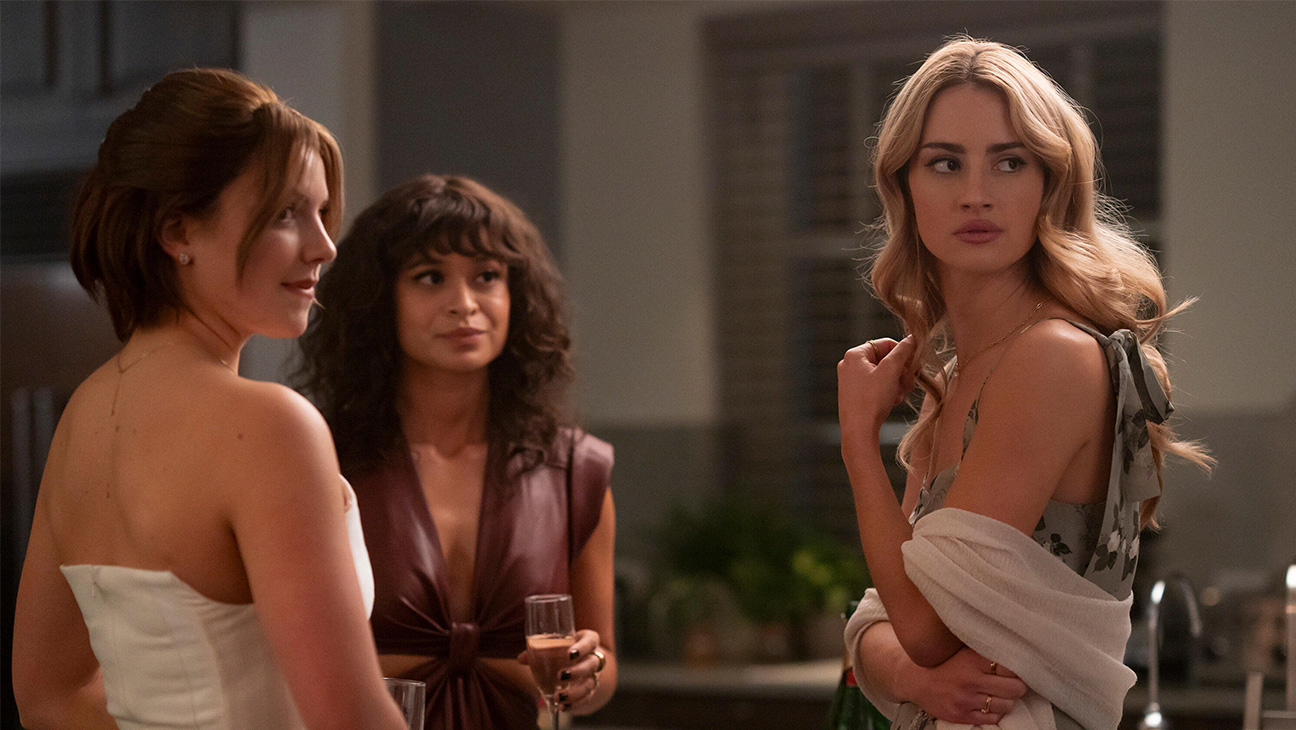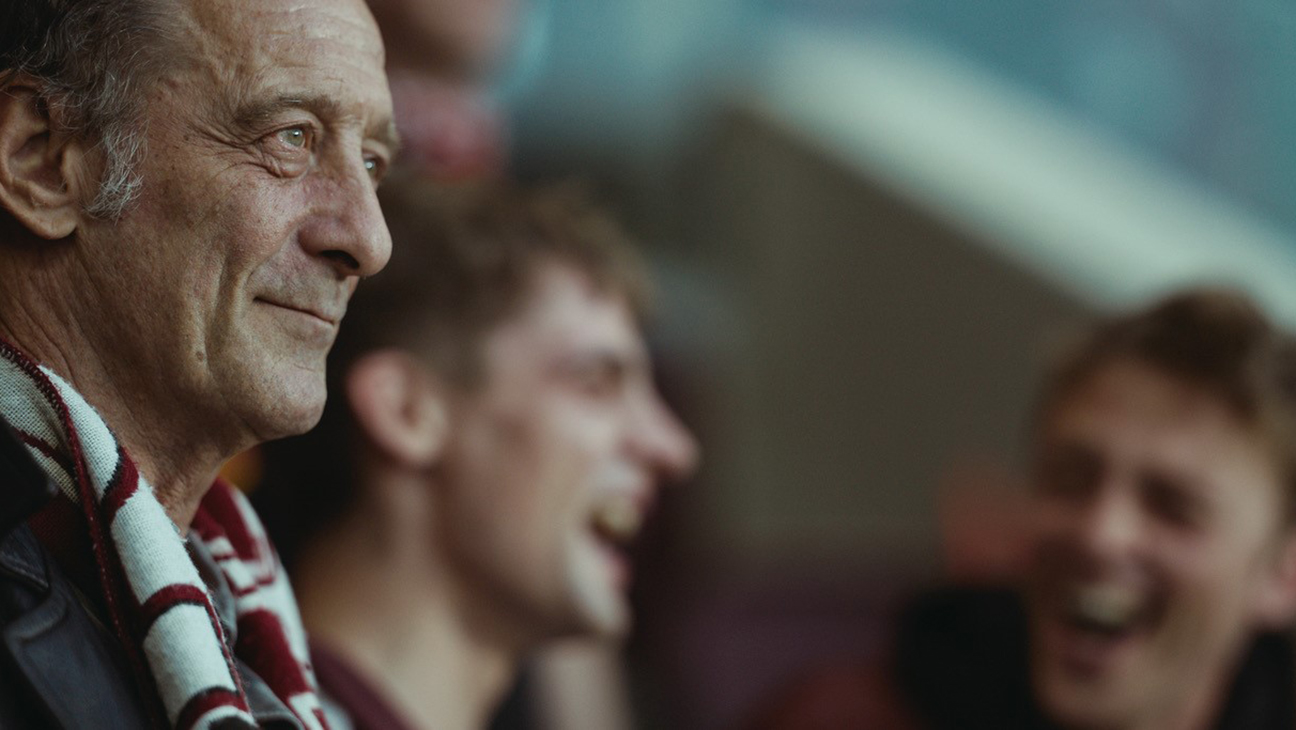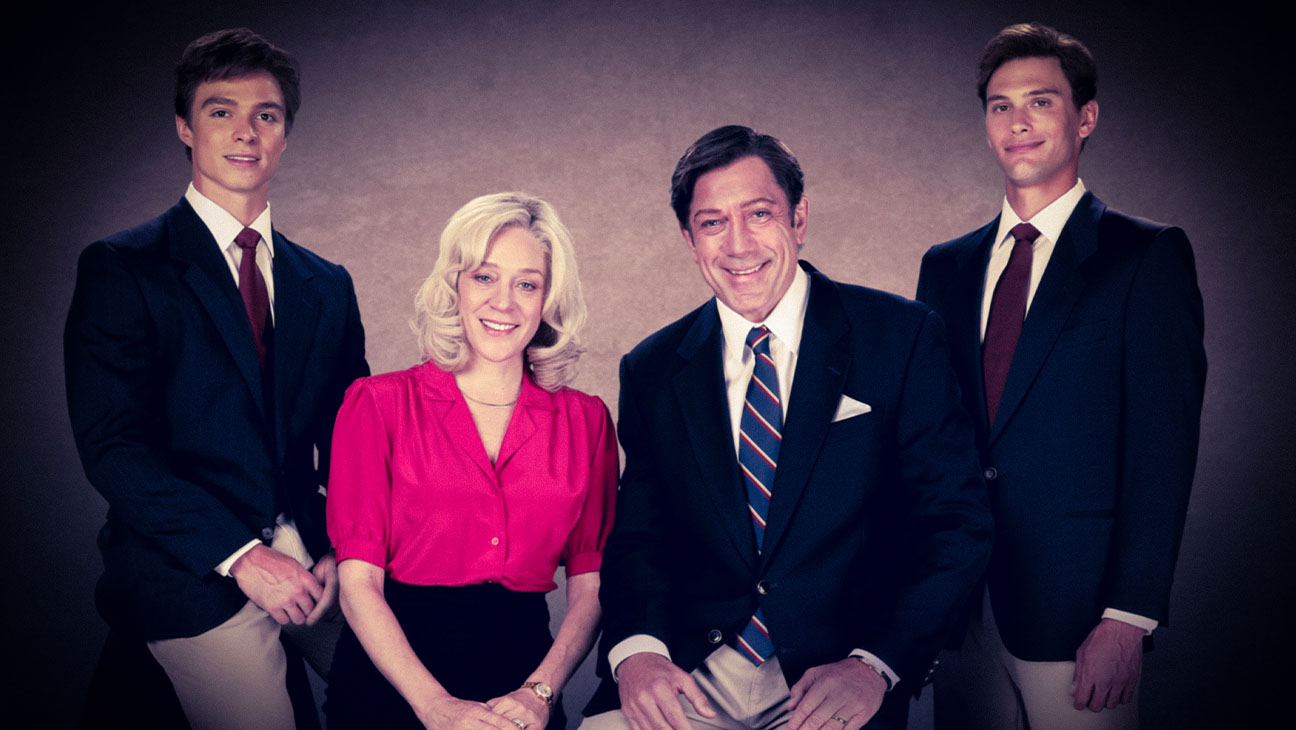In the immediate aftermath of the 2023 WGA and SAG-AFTRA strikes, Michelle and Robert King were informed that Paramount+ would not be moving forward with a fifth season of their supernatural drama, Evil. They were given four additional episodes to wrap up the series, which were announced in February. But a funny thing happened just two months later. The first two seasons of Evil dropped on Netflix and were, like so many overlooked library titles that dropped before, a hit.
Evil ranked behind only Bridgerton as the top streaming original as recently as June, a fact that is not lost on the veteran writers and producers who are now officially closing the book on their show at the peak of its popularity. With the last five episodes of Evil‘s fourth and final season kicking off on Paramount+ weekly starting July 25, the Kings recently hopped on Zoom to discuss how even a successful show can’t make it in the shifting TV marketplace. Veterans of political commentary and satire (see The Good Fight and Brain Dead), they also discussed the wild election news cycle — though they spoke before President Biden’s withdrawal from the race and endorsement of now-presumptive Democratic nominee Kamala Harris — what kind of TV they might make if Donald Trump returns to the White House and the challenges to making anything at all in the current Hollywood economy.
How does ending Evil feel, knowing that this conclusion is coinciding with previous seasons doing so well on Netflix?
MICHELLE KING I’m going with ironic. Look, I’m glad we got the opportunity to do the last four episodes so that we could wrap up this story in hopefully a satisfying way. But, yeah, more people than ever are watching the show. It seems like a funny time to say goodbye.
Where were you in the making of season four when you were informed it would be the last?
ROBERT KING The strike happened in the middle of shooting episode 10. So we came back in December of last year, shot the last six days of the episode. Just prior, we were told that Paramount+ wanted to end the show and that they were going to give us four more episodes. We didn’t know the fourth season was going to be end. You write these seasons so that there’s a cliffhanger or at least a chapter turn at the end. It would’ve been very frustrating to the audience that we ended it [with 10]. So we brought the writers room together in January and started shooting them right after that.
Evil has leaned more and more into the supernatural elements since the beginning. You’ve said what appears onscreen could be interpreted as fact or metaphor, depending on one’s worldview, which feels a bit like gaslighting in a season that is about the arrival of the antichrist. Are you sticking by that take?
ROBERT I do like Kristen’s [Katja Herbers’ character] explanation to her daughters, which is that she tried to bring them up to be realists. And as much as she respects Sister Andrea (Andrea Martin), she sees psychological problems as supernatural. I kind of like that, even though I agree with you. The show needs a supernatural element or it’s just not interesting. But we want there to be a little bit of a doubt that it could be all in people’s heads, too.
Did that approach change from the beginning to these last episodes?
ROBERT Not really, but it was a struggle in the writers room. It would be great to go whole hog supernatural — but when you go whole hog is supernatural, you start to lose the tension of the real evil that’s in present day. Evil is out there and that evil is interesting on its own.
Those real evils you explore are less overt than those you tackled in The Good Fight. In the midst of this truly wild summer and election cycle, do you miss having that outlet for political themes?
MICHELLE I very much miss it. We’d go into that writers room in the morning and everybody was a news junkie. You could discuss it all and hopefully make something out of it.
ROBERT We always called it our therapy, and it really was. We don’t have that outlet now. Evil was for a little while, but we’re losing that too. There’s something sad about TV shows not being able to engage with the present day — either because there’s such a long tail between when you shoot and when you broadcast or stream, or because there’s this greater fear. The more the business coalesces, the more these brands are afraid of offending their audience or offending anybody. What was fun about Evil was that it wasn’t just guaranteed genre scares. It addressed some of what The Good Fight did.
MICHELLE In more of a global way, not quite as topical. If The Good Fight was ripped from the headlines, Evil is more of a magazine piece.

Aasif Mandvi, Mike Colter and Katja Herbers in the fourth and final season of Evil.
Elizabeth Fisher/Paramount+
To your point about these brands being afraid to offend, the panic in Hollywood after the 2016 election is that nobody was programming to the “middle” of the country — whatever that means. Is the desire for that kind of programming still discussed?
MICHELLE I have not heard it discussed in that way since 2017 or something like that. There’s a real focus on money now and not being niche. That’s kind of another way of talking about the same stuff. They’re looking for broad hits, which is not typically about people with views that are not mainstream or cultures that are not mainstream.
ROBERT It feels like everybody’s afraid, but they can’t really put their finger on what they’re afraid of — aside from just being blamed for something that doesn’t work. This whole idea of the gourmet cheeseburger. What they mean is that a cheeseburger does not overlook Middle America. But the gourmet is what? It’s heightened? I think it’s a way to try to embrace the whole country. The difficulty is when things become too generic. I’m having trouble watching a lot of streaming shows, because I feel like I can read the plotting. I know where it’s going before it gets there.
The Good Fight ended up being a very different show than you anticipated. You pivoted after the 2016 election. In a hypothetical second Trump presidency, what kind of TV do the Kings make?
ROBERT As much as we’re all friends now and not supposed to be saying this, the worry for me is fascism — like a Philip Roth book about Charles Lindbergh becoming president [The Plot Against America]. Even though The Good Fight was always seen as a left-leaning show, which it was, it was also satirical about the left. I do think that really is required now. A lot of people on the left think, “We’re the right ones!” When, in fact, oh my God, is it getting scary out there on the left? For me, it’s the worry about fascism and execution. The incompetence of Trump can really be overcome by this team of people he is surrounded by with who will execute and truly execute — because one of the things he wanted to do was execute people who were traitors. On one hand, the other concern is the left, which should be girding its loins to do battle. It’s sometimes both incompetent and obsessing on their own prejudices. That’s not a very positive way to put it, because we want our shows to be comic.
MICHELLE The issue that we face is we always try to fight against being earnest. If you try to explain to the world what is wrong and what is right, it’s tedious. I don’t want to watch that, either. So that will be the challenge if we should get there.
ROBERT There was a season [of The Good Fight] where we did something called “Memo 618,” which was about how people could just ignore the law because they had a certain clout. That got interrupted by the pandemic, but there was something interesting there. There does seem to be a double standard to the law, as we saw with this judge who punted on the Trump charge. There does seem to be some pushing aside of the law when it doesn’t serve your purposes. We’re seeing some of that with Supreme Court. The difficulty, as Michelle said, is that if you hit that head on, I don’t want to watch. I just want to shoot myself on the head.
Looking at Hollywood at large, what’s the most concerning conversation that you’ve had with an executive in the past six months?
MICHELLE The most concerning conversation is the one that just happens over and over — which is, “There’s no money to make shows.”
ROBERT Also, for me, it was, “We’re canceling your show — and not because of quality or that people aren’t watching,” I don’t know what it is. It’s all going to horses.
Does the drama at Paramount Global, all the speculation and back-and-forth about a sale, impact the day-to-day of working there?
MICHELLE We’ve been at CBS Studios and the network for 15 years now. We really like the people we work with on the day to day. The people that are deciding what the shares are worth and the deals aren’t part of our day to day. So we’re just trying to make our shows and make them interesting.
ROBERT I think what we really loved about CBS is the people are people who really love the shows. I’m reading this biography of Stanley Kubrick and the way he goes on about [late Warner Bros. executive] John Calley is kind of the way we feel about our executives. They’re just people you want to have creative conversations with. The other shit is concerning, because how much of that is going to stop them from going with their creative and collaborative instincts? Everything is now about satisfying the people who are not in our day to day. So we’re of two minds on that. We love working here, but we hope it’s the same place after all the dust settles.
Do you think there’s a road back to a world where you’re selling projects to platforms outside of your own company?
ROBERT Yes, and I think we’re commercial in that way because we make shows at a price. None of our shows have spaceships. We’re not 3 Body Problem. We can do episodes that are self-contained, which, for a while there, seemed to be a desire. It’s unclear how much that is still desired, but we love that format. I think we [Paramount] has a Sony side to them where they’re about selling their product other places. We’re really taking advantage of that with Evil. Evil going up to Netflix, just those first two seasons, raised the profile of the third and fourth season on Paramount+.
Before I let you go, and this is not a slight, but is Happy Face the longest you’ve worked on a project before it airs? It’ll be almost five years from the original development news by the time it premieres.
MICHELLE The answer is yes, but the good news is that it’s coming out and it’s really good.
ROBERT We’re as proud of it as anything.
MICHELLE Jen Cacicio has done a wonderful job showrunning, as has Liz Glotzer, who’s an executive producer.
ROBERT It does feel more like with features, when I was writing them, how it would take five or six years between when you first put pen to paper and when it was finally ready to shoot. What’s amazing here is that this even happened after the strike and everybody tightening their purse strings. That is a real testament to what Jen’s doing with the scripts and the great casting. Dennis Quaid could not be more perfect than this.



